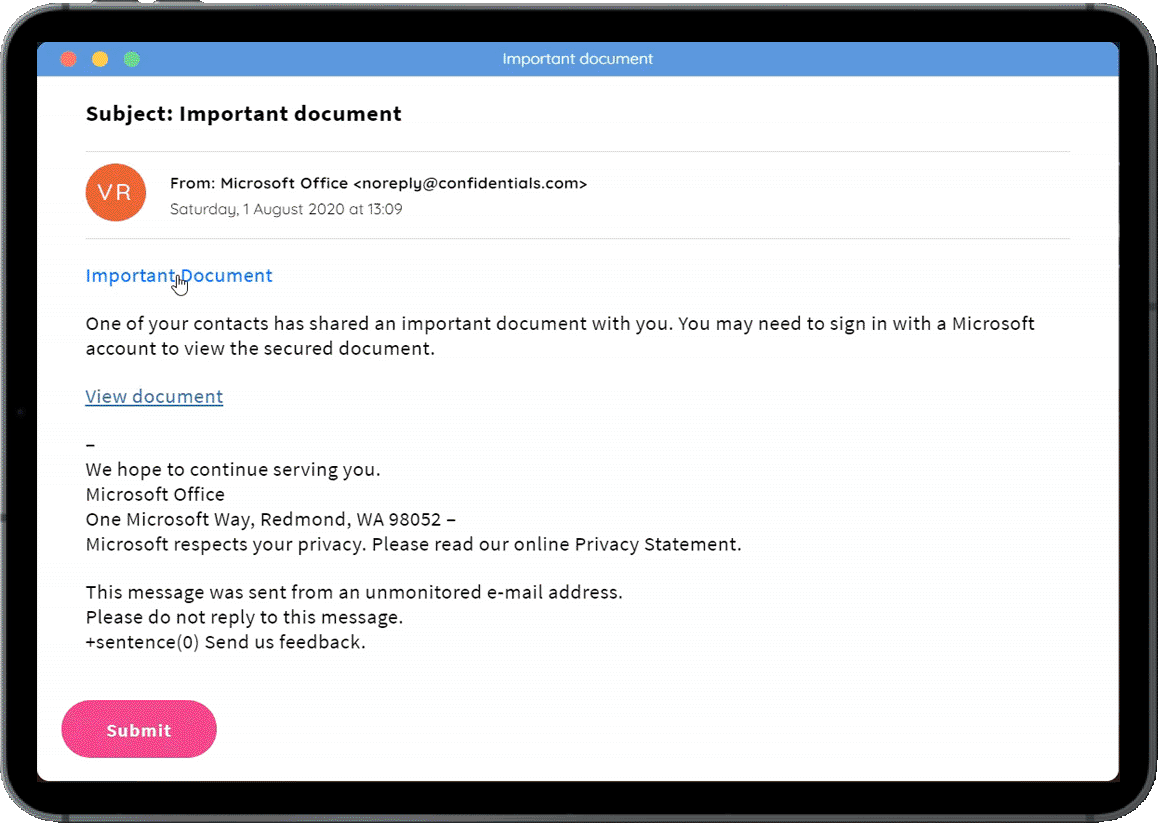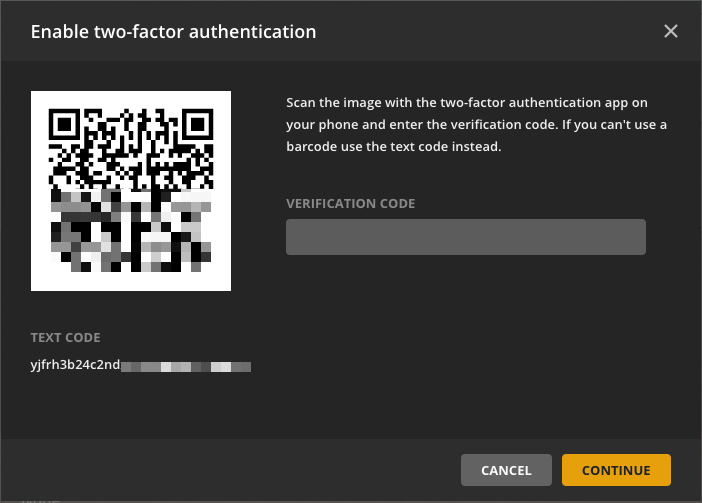Recognizing the Red Flags
The Rise of Crypto Phishing Scams:
Cryptocurrency phishing scams have become increasingly sophisticated, targeting both newcomers and seasoned investors. These scams often take the form of deceptive emails, fake websites, and social media messages designed to trick individuals into revealing sensitive information or transferring funds to malicious actors.
Recognizing the Red Flags:
To avoid falling prey to crypto phishing scams, it's crucial to be vigilant and recognize the common red flags. Some warning signs include unsolicited messages urging immediate action, misspelled or suspicious website URLs, and promises of unrealistically high returns. Always verify the legitimacy of communication and double-check website addresses before taking any action.
Protecting Your Private Keys:
Private keys are the gateway to your cryptocurrency holdings. Never share your private keys or recovery phrases with anyone, and be cautious when entering this information online. Legitimate services will never ask for such sensitive details via email or direct messages.
Two-Factor Authentication (2FA):
Enabling two-factor authentication adds an extra layer of security to your cryptocurrency accounts. By requiring a secondary verification method, such as a code sent to your mobile device, 2FA helps protect your assets even if your password is compromised.
Educating Yourself:
Stay informed about the latest phishing tactics and scams in the cryptocurrency space. Regularly check official communication channels from exchanges and blockchain projects for updates on potential threats. Education is your best defense against falling victim to deceptive schemes.
Verifying URLs:
Before clicking on any links related to cryptocurrency transactions or exchanges, verify the legitimacy of the URLs. Scammers often create fake websites with URLs that closely resemble legitimate platforms. Bookmarking official websites and using them to access your accounts can minimize the risk of landing on fraudulent pages.
Reporting Suspicious Activity:
If you encounter any suspicious activity or believe you have been targeted by a phishing scam, report it to the relevant authorities and the platform involved. Quick reporting can help prevent others from falling victim to the same scam.
Conclusion:
As the crypto space continues to grow, so does the need for heightened awareness and security measures. By staying informed, recognizing red flags, and implementing best practices for online security, you can navigate the cryptocurrency landscape with confidence and avoid falling victim to phishing scams. Remember, the key to protecting your digital assets is in your hands – don't get hooked by the bait of deceptive scammers.
Phishing email with a suspicious link
The cryptocurrency realm, with its volatile nature and dazzling promises of riches, can be a tempting target for malicious actors. Among the dangers lurking in the shadows are crypto phishing scams, designed to steal your valuable digital assets and leave you empty-handed.
Phishing, in simpler terms, is the art of deception. Scammers pretend to be legitimate entities, like popular exchanges or wallet providers, to lure you into revealing sensitive information or clicking on malicious links. Once they have you hooked, they can easily drain your crypto holdings.
How Do Crypto Phishing Scams Work?
The tactics used by these digital pirates are diverse and constantly evolving, but some common schemes include:
- Phishing emails: Emails disguised as official messages from exchanges or wallets, often urging you to "verify your account" or "claim a bonus" by clicking on a suspicious link. These links lead to fake websites designed to steal your login credentials or private keys.

Website of a fake cryptocurrency exchange
- Smishing: Similar to phishing emails, but using text messages instead.
- Vishing: Voice phishing, where scammers impersonate customer support representatives and trick you into divulging sensitive information over the phone.
- Social media scams: Fake cryptocurrency giveaways or investment opportunities promoted on social media platforms.
- Malicious apps: Fake cryptocurrency trading apps or wallet apps that steal your private keys once installed.
The Red Flags of Crypto Phishing
Staying vigilant is crucial to avoid falling victim to these scams. Here are some red flags to watch out for:
- Urgency and Scarcity: Scammers often create a sense of urgency or scarcity to pressure you into acting quickly, without thinking critically.
- Typos and grammatical errors: Legitimate companies rarely have typos or grammatical errors in their official communications.
- Suspicious URLs: Hover over any link before clicking to see the actual destination URL. If it looks strange or doesn't match the sender's domain, don't click!
- Requests for private information: Legitimate platforms will never ask for your private keys or seed phrases via email, text message, or phone call.
- Too-good-to-be-true promises: If an investment opportunity seems unrealistically lucrative, it probably is.
Stay Safe in the Crypto Jungle
Here are some essential tips to keep your crypto safe from phishing attacks:
- Never share your private keys or seed phrases with anyone, under any circumstance.
- Double-check URLs before clicking.
- Enable two-factor authentication (2FA) on all your crypto accounts.
- Only use trusted and well-established cryptocurrency exchanges and wallets.
- Be wary of unsolicited investment advice, especially on social media.
- Stay informed about common phishing scams and tactics.

Picture from: https://support.plex.tv/articles/two-factor-authentication/
Remember, if something seems too good to be true in the crypto world, it probably is. By staying informed, exercising caution, and practicing good cyber hygiene, you can navigate the crypto space safely and securely.
Closing Thoughts
Crypto phishing scams are a serious threat, but by being aware of the tactics used and taking necessary precautions, you can protect your valuable digital assets. Share this knowledge with your fellow crypto enthusiasts and let's build a safer and more secure crypto community together!
Here are some helpful resources to learn more about crypto phishing scams:
- Cryptocurrency Scams: How To Spot, Report, and Avoid (Investopedia): https://www.investopedia.com/articles/forex/042315/beware-these-five-bitcoin-scams.asp
- How To Avoid Cryptocurrency Scams (Kaspersky): https://www.kaspersky.com/resource-center/definitions/cryptocurrency-scams
- What To Know About Cryptocurrency and Scams (Federal Trade Commission): https://consumer.ftc.gov/articles/what-know-about-cryptocurrency-and-scams
Remember, if something seems too good to be true in the crypto world, it probably is. By staying informed, exercising caution, and practicing good cyber hygiene, you can navigate the crypto space safely and securely
Oregonians were tricked out of $13.6 million in cryptocurrency scams in the first 10 months of 2022, according to the FBI.





















![[ℕ𝕖𝕧𝕖𝕣] 𝕊𝕖𝕝𝕝 𝕐𝕠𝕦𝕣 𝔹𝕚𝕥𝕔𝕠𝕚𝕟 - And Now What.... Pray To The God Of Hopium?](https://cdn.bulbapp.io/frontend/images/79e7827b-c644-4853-b048-a9601a8a8da7/1)









![[LIVE] Engage2Earn: auspol follower rush](https://cdn.bulbapp.io/frontend/images/c1a761de-5ce9-4e9b-b5b3-dc009e60bfa8/1)
